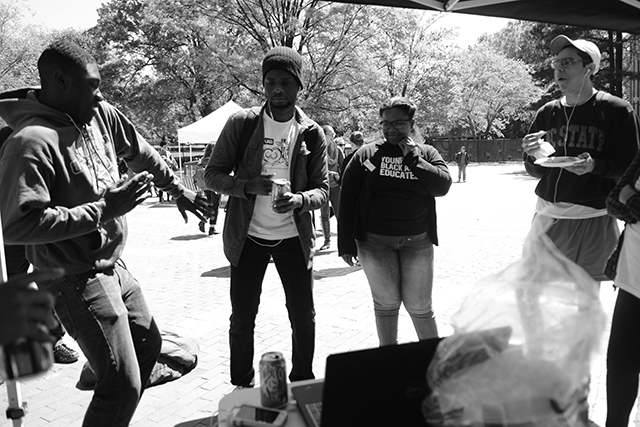What Pan-Afrikan means to NC State

Chauncey Bowden | Staff Writer
Pan-Afrikan week at NC State first began in 1970, making this year the 46th year anniversary of the event. It means many different things for many different people, but I’d argue that for most, it represents coming together and celebrating our history.
This years theme was “Rooted”. It is important that we stay firm in our roots, remembering the people and words that have brought us this far.
As a black student at a PWI it is natural to feel left out. I often find myself envying my friends who chose to go to HBCUs.
Their football games are different than the ones here at State. They don’t have to worry about the performer at the homecoming concert potentially being a country singer that they’ve never heard of. They may never know the feeling of walking into class on the first day and praying to God that there’s another brown person in the room.
While Pan-Afrikan week is highly regarded for its social activities, that is certainly not all that it is worth. This week represents a time of reflecting on the past, embracing the present, and looking to the future.
Pan-Africanism is “the idea that peoples of African descent have common interests and should be unified.” (Britannica) Some of the goals associated with this idea were to bring about self-awareness, unity and celebrating one’s history. Today, those sames goals and aspirations are the driving force behind Pan-Afrikan Week here at State.
Tsharre Sanders, a senior studying psychology with minors in Africana Studies and Spanish, serves as the 2015-2016 Black Students Board (BSB) Chair. BSB is a programming committee of the Union Activities Board (UAB) and is responsible for some of the signature programming that brings the African-American community together; Pan-Afrikan Week is one of those events.
“It brings together our community and gives those of us that choose to participate an outlet to celebrate our culture and history,” Sanders said.
This week is not only for current students. Alumni often come back to participate in the festivities.
Seeing former students who have not only been in my shoes, but have gone out into the world and succeeded is far more inspiring than anyone may ever know. It is almost as if seeing them is a reminder that I can go on, that I can and will succeed.
Many noted speakers such as Sister Souljah and Hasoni Imarobe have been featured during Pan-Afrikan week before. This year, Marc Lamont Hill spoke about “Fighting for Freedom in an Hour of Chaos.”
For me, Pan-Afrikan Week is my “black week of solace”. It’s my “black homecoming”. I get to see my people, my culture, and my history not only represented, but truly celebrated.
Pan-Afrikan week shows that we are here to stay and we will continue to be a strong, positive, and present force on this campus.